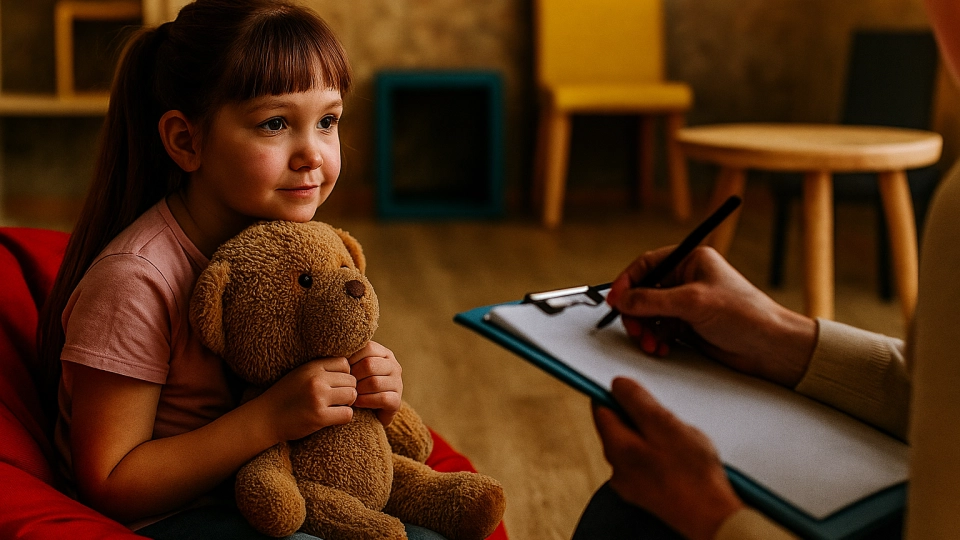A child sometimes faces difficulties, whether at school, at home, or in a group setting. Some of these situations resolve on their own, but there are times when professional therapy could help.
When is it really worth turning to professionals?
Distinguishing between typical childhood behavior and what may indicate a deeper problem is not always simple. Children grow and develop at different paces, but a persistent negative change in behavior, feelings, or school performance can signal a psychological or developmental issue.
A shift in mood can be the result of experiencing stress, fear, or anxiety. Observe the child more closely. Notice whether signs of anxiety, sadness, or aggression occur frequently without an obvious reason, or persist over time.
The same applies if the child suddenly changes their behavior at school. A decline in performance, frequent illnesses, or reluctance to join group activities can indicate not only academic difficulties but also psychosocial problems, for example with peers or adults.
If you notice long-term changes, don't hesitate to reach out to the school psychologist, a child psychologist, or another child mental health professional.
What signs should you watch for?
One of the most common indicators that therapy is needed is increased nervousness or anxiety in the child. If the child regularly experiences intense worries, fears separation from parents, or is troubled by nightmares, it's a good idea to see a psychologist. A professional can identify more serious causes of anxiety and advise on solutions.
Equally concerning can be aggressive behavior or, on the contrary, markedly distant and introverted behavior. Watch whether the child suddenly isolates from friends, loses previous interests, or, conversely, reacts with excessive aggression or rage to the slightest stimulus.
Any changes in sleep patterns, such as insomnia, taking a long time to fall asleep, or frequent nightmares, can also be a sign. If these symptoms last longer than a few weeks or even worsen, it's time to visit a child psychologist.
How to proceed if you realize your child needs therapy?
If you find that your child likely needs therapy, don't hesitate. Explain sensitively to the child that seeing a professional is normal and that many children sometimes need help. Emphasize that the therapist is there to help the child better cope with what is troubling them.
The first appointment with a therapist is primarily introductory. The therapist assesses the current situation and will propose a strategy for further collaboration. Remember that successful therapy requires the cooperation of parents and the child with the specialist.
It's best if the therapist also offers consultations for parents or actively involves the family in the process.
Don't wait to see whether your child's difficulties will 'resolve themselves.' The sooner you visit a professional, the faster your child's improvement may be. Observe carefully and take note of the signals mentioned. As soon as you notice any of the persistent difficulties described, contact a child therapist.

